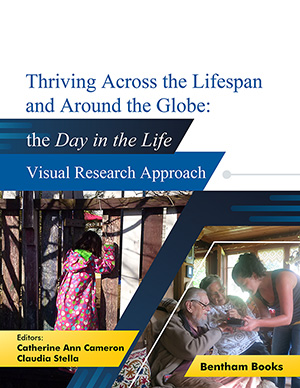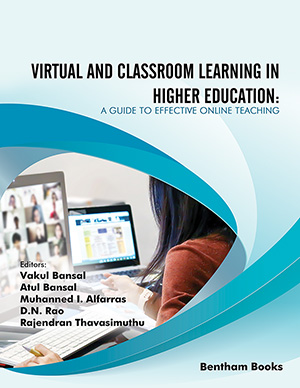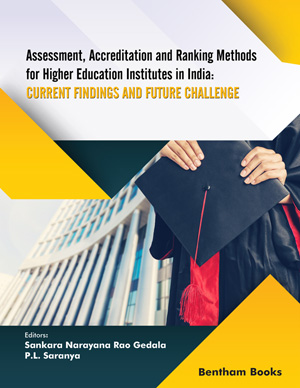Education and Politics
Page: 3-19 (17)
Author: Ayşe Ottekin Demirbolat
DOI: 10.2174/978160805371111201010003
PDF Price: $15
Abstract
This chapter analyses the relationship between education and democracy from a structural viewpoint, and examines the relations and interactions of education and politics with each other, with other institutions and with the whole social structure. The relations of educational and political institutions with the social whole are examined in terms of infrastructural – namely, natural, demographic and economic – and super structural – namely, cultural and institutional – factors and their interactions, which Marx assumed to exist in his analysis of the operation and evolution of societies. Inasmuchas Marx’s macro scheme is not adequate to explain specific operational and evolutional processes in specific economic and social formations, it needs to be complemented by more differentiated ones. Following the lead provided by Marx, five elements are posited as constituting social formations (Kolakowski, 1989; Bottomore, 1981): production forces, production relations, sociopolitical system, formed on the bases of these two, intellectual structure of society, and its mentality, determined by the socio-political system and various ideologies.
Natural, demographic and economic factors, which are dealt with as infrastructural ones, are seen as the basis of the “production forces” and production relations. Cultural and institutional factors, which are taken as super structural factors are considered as the reflection of the “socio- political system”, “intellectual structure of the members of society” and “various ideologies” formed by the structure. At the institutional and cultural factors dimension, the position and function of an educational or political institution, which are different from other social organizations, are deemed important for a sound understanding of the education-democracy relationship. The chapter particularly maintains that the relationship between education and democracy can be conceived differently at the level of states and governments, and governments may not always remain sensitive in their commitment to the basic characteristics of the state.
Education, above all, is an instrument that ensures the continuity of the state. This instrumental relationship in democracies is at least as important as that in autocratic, theocratic or totalitarian states. Yet, it may not be as simple, clear or functional as it is in authoritarian regimes because in countries still undergoing democratization, the elected who have not internalized democracy may easily convert the education-state relationship into a government-education relationship. Thus, the natural relationship between the educational institutions and the state may turn into one that threatens democracy, pointing in a backward direction. If such a process is initiated by the elected rulers, democracy will become even more unprotected and defenseless, as it will be used as a tool for purposes other than democracy.
In conclusion, unless knowledge and awareness about democracy are communicated well and the governed and the governing are educated as true democrats, a democratic political regime cannot be managed according to its main principles in a society. For this reason, the importance of educational institutions in terms of democracy should always be kept in mind.
The Structural Relationships Between Democracy and Education at the Macro Level
Page: 20-26 (7)
Author: Ayşe Ottekin Demirbolat
DOI: 10.2174/978160805371111201010020
PDF Price: $15
Abstract
This chapter deals with the macro level functional relationships between democracy and education, starting from the fact that education, as a social institution, cannot be configured independently from the administrational and economic policies of the state.
The development of democracies depends upon the level of knowledge and awareness that societies have reached. For the education institutions to be able to communicate this knowledge and awareness, the will and demand of the government that represents the state are required since curricula cannot be designed independent of this will and demand.
The decisiveness of the state and governments about imparting knowledge and awareness of democracy through education is not an adequate variable in analyzing the macro level relationships between democracy and education.
Education policies that aim at providing equal opportunities and oriented to imparting knowledge and awareness to “all citizens” are also needed. In democracies, the existence of citizens who can study and think in depth is so important that these skills should not be limited to only a specific segment of the society.
In this context, a political system will not be deemed to have acted in sufficient force at the macro level to sustain and protect democracy unless it has stamped its will and wish to be a democratic state onto the education curricula, and unless it has provided equal opportunities in education to all its citizens so as to enable them to acquire the skill to think and evaluate in depth.
The Functional Relationships Between Democracy and Education at the Micro Level
Page: 27-38 (12)
Author: Ayşe Ottekin Demirbolat
DOI: 10.2174/978160805371111201010027
PDF Price: $15
Abstract
This chapter addresses the micro level functional relationships between democracy and education. The functional relationship between education and democracy at the macro level was dealt with in Chapter 2 and it was pointed out that the objective of the internalization of knowledge and awareness of democracy by all citizens cannot be achieved independent of the administrational and economic policies of the state. At the micro level, the same objective cannot be realized independent of the attitudes and behaviors of the teachers and the climate of classroom environments.
While the macro level education-democracy relationship emphasizes the objective of “providing every citizen with knowledge and awareness of democracy”, the principal aim of the micro level relationship is “the reflection of this knowledge and awareness onto real life and their transformation into behavior”. This transformation requires a democratic climate and appropriate conditions for action in educational environments. To create these conditions, classroom environments should have an atmosphere of trust and freedom, as well as democratic communication and interaction.
In the creation of such an atmosphere, the teacher supports independent and scientific thought, involves the student in the process of producing knowledge, creates supportive milieu, facilitates access to information, applies firm disciplinary policies, keeps avenues of claiming rights open, provides opportunities for participating in the decision-making process, shares responsibilities with the student and creates a collaborative classroom environment that sustains the “us” feeling.
Education for Democratic Citizenship
Page: 39-63 (25)
Author: Ayşe Ottekin Demirbolat
DOI: 10.2174/978160805371111201010039
PDF Price: $15
Abstract
Thoughts and actions have similar descriptive norms. Starting from this fact, this chapter discusses the topics which are absolutely necessary for instituting democratic thinking and democratic actions for a citizenship education on which consensus has been reached.
In contemporary democracies, it is no longer meaningful to differentiate between elitists and activists. The objective is to ensure that all citizens are elite, and not ordinary participants.
An individual cannot be told how to think. However, how people think can be described. It is possible to make someone realize that some ways of thinking are better than others. For example, a person who thinks reflectively does not persist in his individual habits and he learns to be open. He learns to see himself from other people’s perspectives and to put himself in their place.
A person who thinks creatively can risk being different, he can take time in deciding, can think flexibly, and imaginatively, reason fast, and focus on the subject matter rapidly. He is not a perfectionist but selfconfident, flexible, and positive. Creative thinking reinforces critical thinking because it aims to find solutions for a problem and critical thinking aims to evaluate and test the possible solutions. Critical thinking helps a person to experience freedom of thought. It helps to eliminate and disprove irrational thoughts and to find sound solutions to problems.
The principal objective of this section is to discuss ways of heightening the disposition of teachers to accept and effectively use question and answer and discussion methods and collaborative and selfregulated learning models as indispensable practices in raising democratic citizens.
Globalization, Human Rights and Education
Page: 64-74 (11)
Author: Ayşe Ottekin Demirbolat
DOI: 10.2174/978160805371111201010064
PDF Price: $15
Abstract
Views on the relationships between democracy and human rights and the universality of human rights are presented and the position of the teacher, whose role is considered critical in this controversial process of globalization, is discussed.
The global world is increasingly under the influence of the discussions about whether democracy and human rights are based on the same conceptual foundations, and whether human rights are universal. Particularly, the views that human rights are a product of the Western World and that they cannot be universal have led to the formation of antipathy against human rights in non-western societies. However, human rights are a product of human history. The principles related to human rights comprise the rights conceived not according to an understanding of man of a particular philosophy, but that of an individual as abstracted from the historical social and cultural conditions. Unfortunately, international human rights organizations tend to support the relativity of human rights, which has strengthened the prejudiced views that leave human rights in the domain of the monopoly of the west. Consequently, some people or groups have developed an increased need for qualifying themselves with different identifications and have come to over-stress their differences. This situation is the source of many political and social problems currently encountered because social life is a product of the goal oriented to integration, and it is not resistant enough to deep differentiations and separations. Presently, there is a need for reevaluation and for coherent and rational resynthesis by contemporary philosophers of human rights, and their relativity and universality and democracy.
In the face of globalization, the teacher, with a neutral identity, should be egalitarian in the face of inequalities and should provide an opportunity for the students to improve themselves freely, independent of any ethnic or religious pressures and influences. The principal objective of this chapter is to emphasize, the importance of the unitary, bureaucratic and normative characteristics of education institutions to protect democracy.
Conclusions
Page: 75-76 (2)
Author: Ayşe Ottekin Demirbolat
DOI: 10.2174/978160805371111201010075
PDF Price: $15
References
Page: 77-84 (8)
Author: Ayşe Ottekin Demirbolat
DOI: 10.2174/978160805371111201010077
PDF Price: $15
Introduction
This e-book presents an analysis on the correlative relations and interactions between democracy and education at macro and micro levels. This analysis demonstrates that democracy and educational institutes are influenced by the natural, demographic, institutional and cultural dimensions of their society and that the relation between them should be dealt with under the authentic conditions of the society and with an integral perspective. This e-book provides a sound base for discussions on democracy at all levels. Thus it contributes to functional discussions about the philosophy behind education and democracy, by helping education institutions, teachers, administrators and all responsible citizens to consider their own roles within a comprehensible and simple frame in society through the process of democratization.













